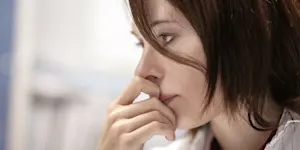What Makes This Word Tick
The word "carnation" sparkles with a bit of botanical flair and romance. It's a noun used to describe a type of flowering plant known for its frilled petals and wide array of hues. Often associated with love, fascination, and distinction, carnations make heartwarming additions to bouquets and gardens alike.
If Carnation Were a Person…
Imagine Carnation as a charming florist with a penchant for pastel shirts and gardening gloves. They have a delightful knack for knowing just which flower fits the mood of any occasion. Always ready with a smile, they exude warmth and have a classic style that never goes out of fashion – just like the timeless blooms they adore.
How This Word Has Changed Over Time
Originally hailing from the Greek word "caryophyllon," carnation has blossomed across centuries. It transformed from a specific type of plant into a symbol of love and admiration during the Victorian era when different colors bore distinct meanings. Today, carnations remain perennial favorites in gardens and floral arrangements worldwide.
Old Sayings and Proverbs That Use Carnation
While there aren't ancient proverbs focused specifically on the carnation, it carries timeless sentiments of love and cherished moments, often symbolized by its place in bouquets. Victorian flower language gave each carnation hue its own saying – a pink one could whisper, "I'll never forget you."
Surprising Facts About Carnation
Carnations aren't just pretty faces; they have culinary applications as well. Petals can be steeped in wine, candy, or used as a garnish. There's even a carnation that produces a naturally blue-hued petal thanks to modern hybridization, moving away from the traditional pinks, reds, and whites.
Out and About With This Word
When you think of "carnation," picture a leisurely stroll through a fragrant garden exhibit at your local botanical garden. Or perhaps you’re reminiscing about pinning a fresh carnation boutonnière on a beloved tuxedo for a memorable occasion.
Pop Culture Moments Where Carnation Was Used
Carnations have popped up in movies like "The Great Gatsby," adding a touch of opulent elegance. They've been symbols of revolution, with red carnations famously worn during Portugal's Carnation Revolution in 1974, embodying peace and transition.
The Word in Literature
Carnations often feature in romantic literature, symbolizing pure love or mourning. A tinge of nostalgia accompanies stories where a character might press a carnation into a favorite book, creating a keepsake of dried petals for posterity.
Moments in History with Carnation
In the realm of significant historical moments, carnations will forever be tied to the Carnation Revolution, where the flower was worn by revolutionaries. Its vibrant red color stood out as a symbolic rejection of violence during a peaceful coup in Portugal.
This Word Around the World
Globally, carnations hold various meanings. In France, they associate with misfortune, often reserved for funerals. Meanwhile, in Korea, carnations are a symbol of filial love, where children place them on the collars of their parents on special days.
Where Does It Come From?
The name "carnation" traces its roots back to ancient Greece, where "caryophyllon" referred to this beloved flower. Later, the Latin "carnation" emerged, drawing from "carnis" (flesh) to describe the flowers' original pinkish hue reminiscent of skin tones.
How People Misuse This Word
Some may hastily use "carnation" when referring to any flowering plant, yet not every blossom with frilled petals is a true carnation. Being mindful can prevent a floral faux pas when assembling that perfect bouquet.
Words It’s Often Confused With
Chrysanthemum: Both are popular garden flowers, but chrysanthemums have more robust, daisy-like blooms.
Camellia: Another bloom that might confuse, camellias are typically larger and less ruffled than carnations.
Clove: Interestingly, carnations belong to the same botanical family as the clove tree, yet one wouldn't invite them into a spice rack mix-up.
Additional Synonyms and Antonyms
While synonyms like "pink" (as a specific type of carnation) might come up, finding direct antonyms is akin to seeking the opposite of beauty itself in the floral world.
Want to Try It Out in a Sentence?
While setting the dinner table, she couldn't resist adding a small vase of pink carnations, their sweet scent and delicate petals gently enhancing the ambiance of the evening.
















